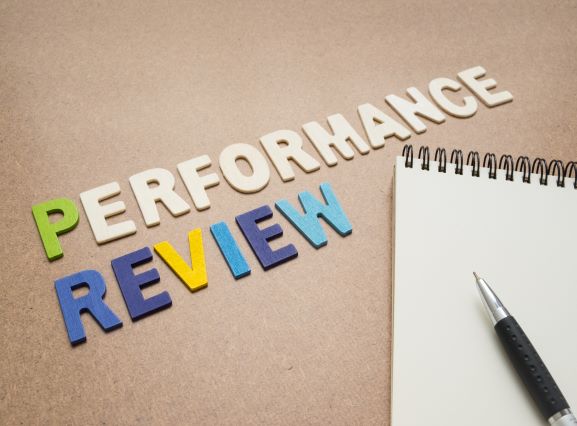Give Yourself A Work-From-Home Performance Review
 Publié le 12 May 2020
Publié le 12 May 2020
Working from home has been a new reality for many of us for several weeks now. In Canada alone, nearly 5 million people have transitioned to work-from-home in response to the COVID-19 crisis. Companies, employers and individuals have all had to change and quickly adapt to a very different work environment and structure. This process has been complicated, and we all need to continue supporting our colleagues by recognizing the unique stresses we’re facing. If you wish to take a look at your own performance and role in the new remote workplace structure, it may be helpful to give yourself a work-from-home performance review. By asking a few simple questions, it is possible to identify any issues, recognize your own accomplishments and make working from home as effective as possible for everyone.
A Work-From-Home Performance Review – 7 Important Questions:
- Did you have the support and resources you needed?
- Did you experience avoidable distractions?
- Did your colleagues respond when you asked for assistance?
- Did you respond to colleagues in an appropriate time?
- Did you receive enough feedback?
- Did you accomplish your goals?
- Are you being too hard on yourself?
Did you have the support and resources you needed?
We don’t work completely alone, even when we are working from home. We are still part of a team, and it’s important that we provide and receive the required support and resources. When conducting your work-from-home performance review, take the time to assess if you have the everything you need to do your job to the best of your abilities.
Were colleagues there to provide info? Did you have the right tools (access codes, software programs, computer hardware) as you would in the office? If the answer is no, this must be brought up with supervisors and management as soon as possible. Without the right support and resources, it is unlikely that we will be able to perform at our best.
Did you experience avoidable distractions?
Everyone has been distracted at work, with 70% of employees admitting dealing with unwanted interruptions, and this can be even more common while we are working-from-home. Of course it is going to take some time to adjust to being able to do our jobs while sitting in our favourite spot on the coach. There is a big difference between giving ourselves this adjustment time compared to dealing with frequent distractions that are within our ability to control.
Have you created a work-from-home workspace that is helps you focus and reduces distractions as much as possible? If you have Netflix on all the time or keep checking social media for updates, both of these things can turned off when you want to focus on work tasks. If you live with roommates, you can let them know that you will be working at a specific time and request that they respect your need to focus.
Did your colleagues respond when you asked for assistance?
If you need vital information regarding a task or project from your colleagues, not receiving a response from them can stop you in your tracks. It’s up to company management and team leaders to streamline the communication process as much as possible while we are working from home.
While performing your work-from-home performance review, go over your completed tasks to determine if you were slowed down due to any types of communication issues. Emails going unanswered, phone call being avoided, virtual meetings being missed. If this happened frequently, you should bring it up with the issue with management right away as it indicates larger problems with the communication system.
Did you respond to colleagues in an appropriate time?
While we are working from our own individual spaces, it’s important to remember that we are still part of a team. Just as we need support and advice to complete our projects, our colleagues are in the same position. If they have reached out to you via email or some other method, did you remember to respond in a timely manner? The fact that we can’t just walk over to each other’s desk or meet in the office kitchen does create a different expectation in terms of the speed of communication.
Communication challenges are very real, both in the office and now for those of us that have transitioned to working from home. One study found that the average person received 88 business emails per day, and that was while most of us were working in an office. Without that simple option for face-to-face communication that number has definitely increased. Of course we don’t have time to respond to a hundred or more emails in a day, but it is important to check for messages from coworkers on a regular basis and to respond – or at the very least acknowledge – a colleague when they reach out.
Did you receive enough feedback?
We all like to get praised and applauded when we do a good job at work. Equally valuable is constructive criticism, as this will help us to see areas for improvement that we may have overlooked. Feedback helps us judge our own performance more accurately, and highlights where we can channel our energy and efforts to constantly improve our work.
Not only do 75% of employees believe in the importance of feedback, over two-thirds wish to receive it on a weekly basis. The fact that we are working from home does not change this. Did you receive any notice, praise or feedback from your supervisors and colleagues? If not, don’t hesitate to reach out and solicit opinions about your work. It’s a great way to stay on track and produce strong results.
Did you accomplish your goals?
It’s very important to always be working towards clearly defined goals. This ensures that the entire organization from management down understands what they are working for and the important role they play in it. Team leaders need to make an extra effort to ensure that each employee understands the importance of their role and contribution while we are working from home.
Given the sudden switch to working from home, many companies have had to alter their goals or redefine them completely. If you are unsure of what your new priorities are, it will be difficult to know what you should be accomplishing. Reach out to managers and supervisors and request a breakdown of the company’s revised objectives, that way you will be able to adjust your goals accordingly.
Are you being too hard on yourself?
When conducting your work-from-home performance review, the most important thing is to assess your overall well-being. Things are weird right now and there’s no way to avoid it. The stress, anxiety and uncertainty produced by the COVID-19 crisis are very real, as are the effects that it can have on our physical, emotional, mental and well-being.
For some, work can be an effective coping mechanism and a welcome distraction, while others can find it extremely hard to focus on these tasks. There’s no right or wrong way to feel, as long as you are being honest with yourself. If there are days where sitting down and focusing on work are simply not possible, this is completely ok. Putting too much pressure on ourselves will not be helpful. It’s not helpful in the office and it’s certainly not helpful while we are working from home.
Giving yourself a work-from-home performance review can be an effective form of motivation, and help us to refine the communication and work process between ourselves and our colleagues. It’s important to ensure that each of us have the resources, guidance and support needed to accomplish our goals, help our colleagues and serve our clients.







